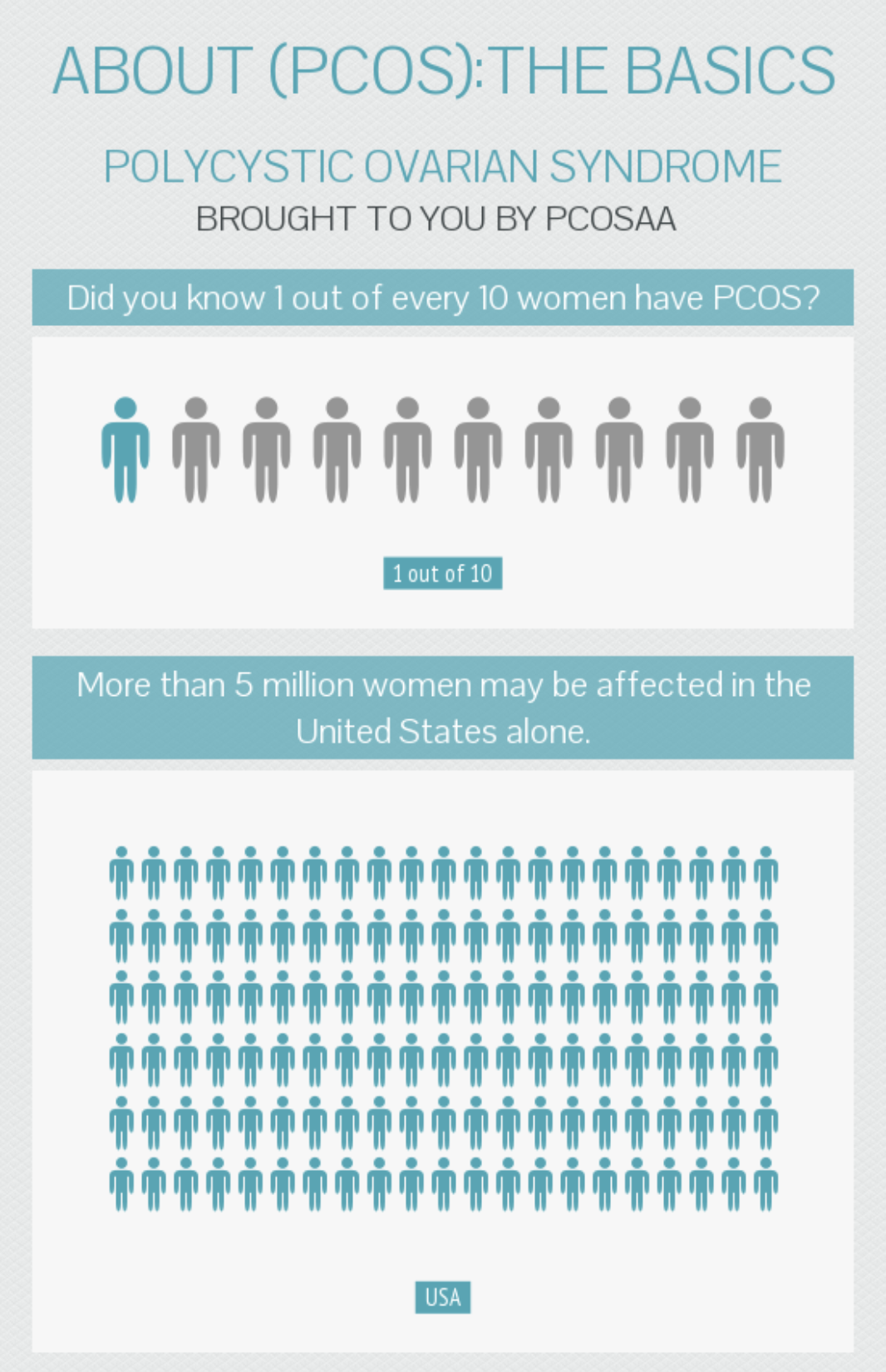Photo credits: PCOS Awareness Association Infographs
For a long time, I have held an amount of personal impatience toward keeping quiet about menstruation. From my own experience, an irregularity and absence in normal menses from my early teenage years made me incredibly curious and frustrated about why my body was not working the way it was supposed to.
It was not until recent years that I taught myself about the various syndromes and common issues in reproductive health. In middle school, I and the people around me were taught that once one gets their first period, it should eventually come at the same time for the rest of one’s menstrual window… And that’s it. If one missed a period, it plainly and simply pointed toward pregnancy. When I consulted a doctor about missing periods, I was reassured that regularity would come with time and when I put less athletic stress on my body. I never had a pediatrician or health teacher tell me about the possibilities of endometriosis, polycystic ovarian syndrome, or other various hormone-related health conditions.
Polycystic Ovarian Syndrome (PCOS) happens when one, typically a young woman in reproductive age, has a hormonal imbalance and can often cause cysts to grow on the ovaries. It is most commonly related to infertility issues, but can also affect other areas of one’s health, ranging from Sleep Apnea to Type 2 Diabetes. An estimated 5–10% of women within reproductive age are affected by PCOS.
Once I talked with my doctor, I was sent to get blood work done within a week. The mere possibility of being diagnosed with PCOS had taken me by surprise, despite my own background research prior to the appointment. The moment I went over blood work results with my doctor, I felt more in control of my body. Despite its commonality amongst women — best friends, friends of friends and even relatives having reproductive conditions — I still felt overwhelmed with what would have to be handled and how new aspects of my personal health care need to fit into my life.
A 2017 study done by Clinical Epidemiology and Clinical Health reviews the tendencies in young women to refer to their menstruations using euphemisms in order to avoid uncovering a more open discussion about menstruation. I choose to write about my current reproductive journey because I know I am not alone and want other menstruating people to know they are seen. Being able to talk openly and break the societal taboo in menstruation language is something we can only achieve if we continue to talk about it. The comfort in completely privatizing my period is one I have grown to no longer need.
PCOS is not a condition that can go away on its own, it can only be treated. Depending on every person with PCOS, treatments can include birth control pills, diabetes medication (if applicable) and a change in diet and levels of physical activity. Always consult a doctor for medical concerns.
Hopefully, the act of knowing my body better than before can help aid in stress management and bring more relief. PCOS should be controlled, not in control.
Kristine Kearns is a second-year English major with minors in Creative Writing and Sustainability. KK947319@wcupa.edu

